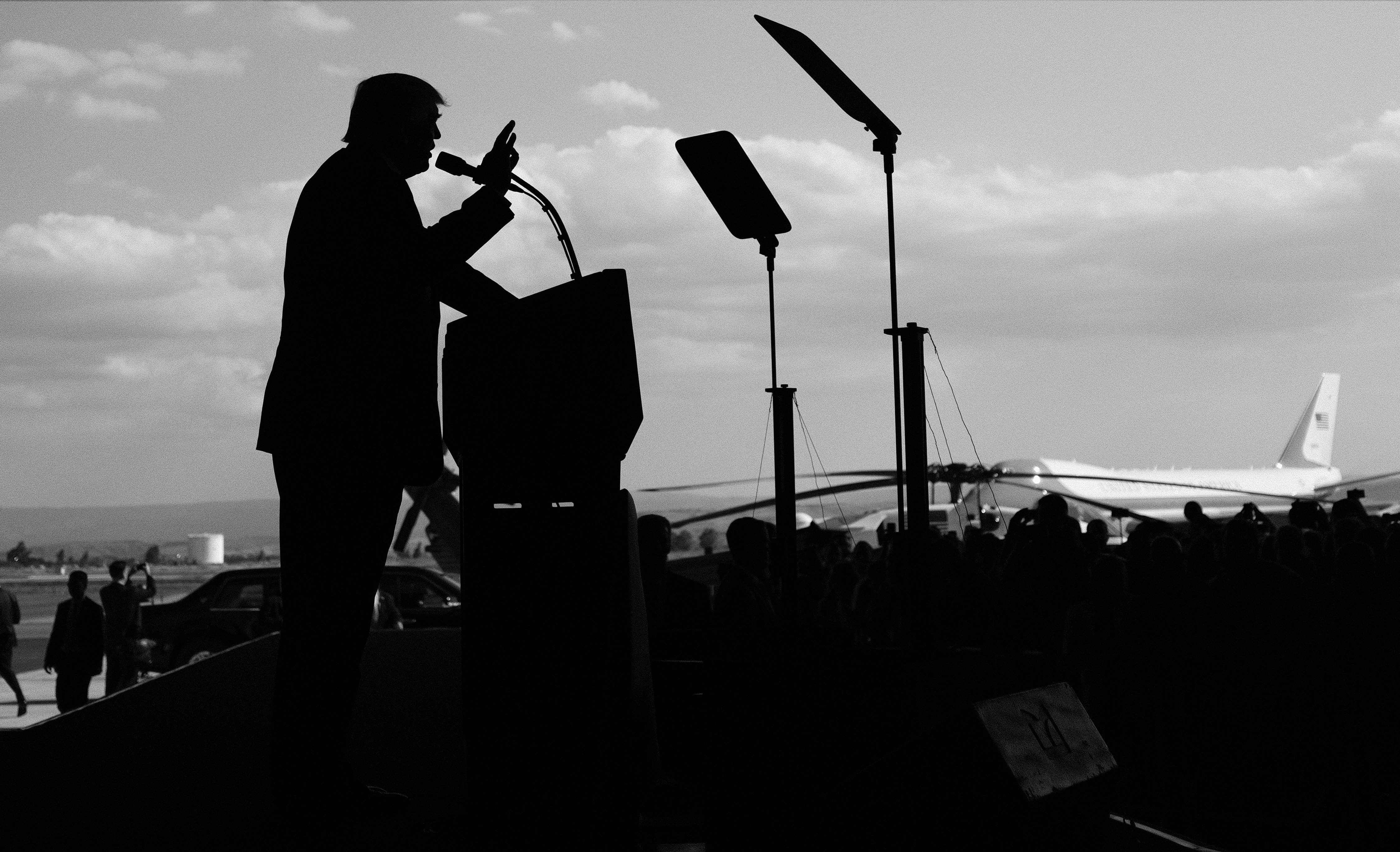President Donald Trump’s first trip abroad was widely caricatured as a parade of pratfalls, with orb-gazing in Saudi Arabia, a High Noon-style handshake showdown in Brussels, and grade-school bullying during a group photo op. By the time the 45th president headed back across the Atlantic on Air Force One, he had, according to many observers, made moves toward eroding a foundation of trust and common values that has defined the Western alliance for more than half a century.
Nowhere was this rift more apparent than in the climate section of the G7 communiqué issued on May 27th, in which six of the seven countries (Japan, Canada, Germany, Italy, France, and the United Kingdom) reaffirmed their strong commitment to implementing the Paris climate agreement.
In an unusual step, the communiqué singled out the United States for its inability to join: “The United States of America is in the process of reviewing its policies on climate change and on the Paris Agreement and thus is not in a position to join the consensus on these topics,” the statement says.
Making such a clear statement was remarkable and perhaps unprecedented, says Susanne Droege, a policy analyst with the German Institute for International and Security Affairs in Berlin.
“It was a surprise that the other six did this,” she says. “They said, ‘We need to make a decision here,’ and they were willing to risk G7 unity. We will have four tough years with the U.S.”
Trump is expected to issue a decision on the Paris Agreement this week—one recent report by Axios suggests Trump has told close confidants that he will pull out.
Whatever he decides, Trump’s record as president so far, and his stance at the G7 summit, have shaken the confidence of many experts. The architecture of the Paris Agreement requires trust among countries, says Joeri Rogelj, a research scholar at the International Institute for Applied Systems Analysis in Vienna, Austria. Rogelj says countries need to be able to believe that co-signatories will keep pledges put on the table; that there will be genuine efforts to implement them; and that countries will trust each other’s emissions accounting.
“A big global player like the U.S. undermining this trust will not go unnoticed,” he says.
If the U.S. leaves the Paris Agreement, which would involve a four-year process, it could still participate in climate talks, especially those not directly related to the Agreement. If Trump pulls the U.S. completely out of the United Nations Framework Convention on Climate Change, though, American experts will only be able to watch from the sidelines.

(Photo: Mandel Ngan/AFP/Getty Images)
“Deciding to leave the agreement would be politically and diplomatically a clear signal: the end of the U.S. as a reliable partner on global societal issues,” Rogelj says. “At the same time, many countries have expressed clearly that their actions will not be affected by the backtracking of the U.S.”
One thing is clear to Rogelj and other experts: The Paris Agreement was designed to withstand a major disruption like this—a lesson learned from the 1997 Kyoto Protocol, an earlier UNFCCC global climate deal that committed industrialized nations to cut emissions, but exempted more than 100 developing countries, including India and China. That deal was never ratified by the U.S., and Canada later pulled out.
But the grassroots structure of the Paris agreement allows it to continue even if the U.S. withdraws.
“Of course, climate change is a global problem. Having one of the largest emitters continue emitting and not contributing any financing to help poorer nations will make the problem much harder and less equitable,” Rogelj says. And losing U.S. leadership in science and innovation, especially in the area of low-carbon, sustainable technologies, would also hurt.
Trump’s first foray into global diplomacy had consequences beyond climate policy: On Sunday, German Chancellor Angela Merkel said at a beerhall campaign appearance that the U.S. is no longer a fully reliable partner, a statement that many took to mark the end of the post-war global order.
European analysts downplayed Merkel’s remarks as a campaign appeal to her base in Germany, where there’s no love lost toward Trump. But the directness of her words wasn’t lost on Droege, who studies German policy closely.
“[Trump] must have misbehaved so much in Italy that Angela Merkel has had it. She is fed up,” Droege says. By Tuesday, other leading German politicians chimed in, with the head of the German Social Democratic Party saying that world leaders have an obligation to stand up to Trump for important values like human rights, the environment, and free trade.

(Photo: Filippo Monteforte/AFP/Getty Images)
As far as global progress, Droege suggests, the best bet might be to continue developing a Europe-China axis on climate policy, as well strengthening cooperation with individual U.S. states, and with civil society groups and businesses in the U.S.
Reimund Schwarze, a climate economist at the Helmholtz Centre for Environmental Research in Leipzig, notes that, after Kyoto, the Paris Agreement was specifically crafted to withstand withdrawal, even by a major nation.
As such, Schwarze doesn’t see Trump’s current policy, or lack thereof, as a deal-breaker. Jochen Flassbarth, state secretary of the German environment ministry, is on record as saying that the global push for climate action can survive four years of Trump. Beyond that, the outlook is less clear.
“Essentially, it depends on whether we have a long-term Trump effect,” Schwarze says. “The question is whether he can change the scientific consensus. That’s really important. U.S. scientists have to be a really active part in this,” he says, adding that U.S. researchers have always played a key role in compiling the science that shapes the negotiations and policies.
Trump could be most destructive if he tries to rally other countries to his anti-science, anti-climate stance, hastening a “contagion of anti-climate sentiment and making climate skeptics more influential,” according to Schwarze. But for now, he says, it appears the president isn’t going in that direction.
The other big question is what Trump’s energy policy actually ends up looking like, beyond the rhetoric. If Trump tries to keep his promise of reviving the coal industry through massive subsidies, it could mean an increase in U.S. greenhouse gas emissions.
There are plenty of crystal-ball projections for U.S. emissions under Trump but some of the most recent credible analyses suggest that, with continued growth of renewables and replacement of coal by natural gas, U.S. emissions will probably stay flat—and that means there’s still a small window of opportunity to reach global climate goals.




